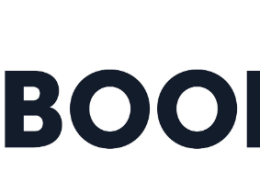The Cardano ecosystem is maturing rapidly throughout the summer season. For those in the know, the matter is hardly surprising. Murmurs surrounding smart contracts, slated for rollout this Autumn, are percolating through social networks and online forums—occasionally spilling over into heated debate in the meantime. Recently, the July Cardano360 update addressed the buzz highlighting the final steps in refining the long-awaited smart contract capabilities of Cardano.
Alonzo
At the center of the discussion is recent progress with the Alonzo network, Cardano’s smart contract testnet. On July 15th, the Input Output teamed announced a successful hard fork upgrade:
The news ushered in the Alonzo White era of development. The second of three major phases, the hard fork will fine-tune the protocol as it moves to integrate more developers.
Overall, the Alonzo roadmap appears to be mostly on track. Alonzo Blue, the previous stage, saw two node releases and transaction size adjustments, among other improvements to the broader architecture.
Next in line, Alonzo White will double the number of participating developers, including Project Catalyst teams and others building early-stage dApps. This expansion will help ensure network scalability as participants beta-test new features. If successful, the cycle will see wallet backend integration alongside increased API support. After that, the subsequent Alonzo Purple phase will focus on smart contract backend integration before final adjustments are made for the mainnet release.

Africa and World Mobile update
Earlier this year, the Cardano Africa Special covered initiatives aimed at establishing cutting-edge infrastructure across Africa. While most cryptocurrency fanfare focuses on developed nations, the continent is poised to be a key early adopter of blockchain technologies like Cardano.
Charles Hoskinson, CEO of Input Output, summarized this view in a recent sit-down:
“We tend to do business in jurisdictions where there are two things that are facts of life you have to work around: one, very few people are banked, and, two, very few people are reliably connected. What we can bring to the table is a wonderful toolbox of services to help with the economic identity and the banking side.”
As many are aware, African residents are notoriously underserved in terms of banking and finance. Fifty-seven percent of the population is unbanked, with communities in Sub-Saharan Africa particularly marginalized.
A lack of verifiable identification is at the crux of the problem. Large portions of the African population lack birth certificates and government-issued IDs. Without a reliable ID system in place, financial institutions obligated to perform KYC checks cannot offer services.
Cardano seeks to address the matter via its Atala PRISM identity solution, which it is rolling out in Ethiopia later this year. However, the solution relies on internet connectivity, which is also sparse throughout the region.
IOHK partner World Mobile aims to cover the gap. CEO Mickey Watkins explains that his company hopes to leverage Cardano-based identities in a sharing economy. If successful, the partnership will help incentivize ISP networks in unconnected areas.
World Mobile will launch services in Zanzibar in late 2021. They hope to have over 100,000 customers by year-end.
Project Catalyst and Driving Innovation
On the other end of the spectrum, Project Catalyst has been furthering Cardano’s on-chain governance since its inception in 2020. The decentralized fund allows token holders to direct ecosystem growth by voting to allocate treasury funds to promising new projects.
The ongoing Fund 5 vote, scheduled to conclude August 2nd, recorded a 30% increase in participants. And understandably so. Community-led IdeaFest online meetups are providing the engagement and feedback needed to fast-track proposal ideas. Previous proposal winners are also making progress, and the upcoming Fund 6 vote will soon offer the largest allotment of funds to date. In so doing, Fund 6 will direct support to community-identified concerns such as mitigating emerging threats, providing multilingual resources, and more.

If that weren’t enough, IOG partner Wave Financial is also working independently to identify promising startups. The SEC-registered LLC manages cFund, the crypto-native hedge fund backing Cardano-based projects OccamRazer and BlockSwap. Occam is a launchpad providing exposure to reliable DeFi projects, while BlockSwap is a savings product that provides yield on staked digital assets. Interested entrepreneurs can contact Wave Financial here.
Getting Involved: Education & Engagement
Entrepreneurs and developers continue to bring the promises of Cardano to reality. Yet, meaningful adoption relies heavily on growing an informed and active community. Input Output and other leaders in the space are working with this in mind.
Naturally, educational resources are essential for onboarding. In June, the Plutus Pioneer program began its second iteration. Headed by Educational Director Dr. Lars Brünjes, the programming course explains the ins and outs of Plutus, the smart contract coding language underpinning Cardano. Over 2000 students are currently enrolled, with previous graduates providing support. Brünjes has also begun work with Dr. Jim Caldwell on the Mastering Cardano textbook.
As coursework continues to mature, several institutions hope to incorporate Plutus content into their curricula. The European Business University of Luxemburg, for instance, will include content in its remote courses intended for residents of developing countries. Educators interested in collaborating similarly should contact IOHK for more information.
Moreover, other groups are composing further technical resources. Notably, the non-profit Cardano Foundation recently launched a developer portal. The portal hosts detailed guides and valuable tutorials on all things Cardano. Eager to create an impact, the project is seeking community engagement and feedback, which can be provided on their platform. The Essential Cardano repo and the Cardano StackExchange are also must-read sources of know-how and practical information.
Finally, the Cardano Summit will occur in September online and in Wyoming. Readers interested in engaging with the community should head to the summit’s webpage. There, individuals can register as well as suggest nearby locations for future Cardano meetups.
Check out the entire July episode of Cardano360










